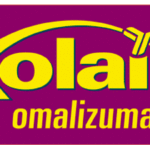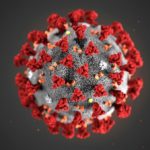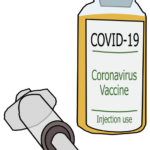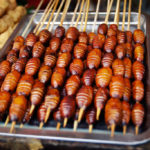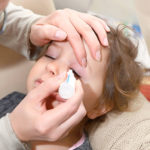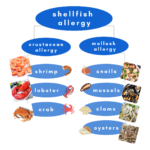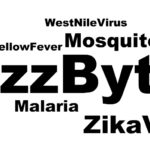Mars Chocolate Issues Peanut Residue Allergy Alert
For interviews and tours of the Delaware Valley’s only certified pollen and mold spore stations for the National Allergy Bureau (NAB) with stations, please email gwoodlyn@asthmacenter.com
Mars Chocolate North America issued a voluntary recall today on varieties of its COMBOS® products due to exposure of low-level peanut residue, according to a release by the U.S. Food and Drug Administration (FDA).
The affected products include COMBOS® Cheddar Cheese Pretzel, COMBOS® Cheddar Cheese Cracker, COMBOS® Pizzeria Pretzel, COMBOS® Sweet and Salty Caramel Pretzel, COMBOS® Pepperoni Cracker, and COMBOS® Buffalo Pretzel. They can be identified by their “best before” date ranging from March, 2017 – April, 2017 on the back of the package.
Mars initiated the recall after its supplier, Grain Craft, recalled certain lots of wheat flours that potentially contain low levels of peanut residue. COMBOS® Brand products may have been produced using the recalled flour. The vast majority of these products were distributed through the United States, with the remaining batches shipped internationally to the Bahamas, Jamaica, Virgin Islands- St Thomas, Antigua, Colombia, Panama, Puerto Rico, Philippines, South Korea, Taiwan, and Singapore.
Currently, there have been no reports of illness related to the recalled products to Mars Chocolate, and no other Mars products are impacted by this recall. Individuals concerned whether their COMBOS® product is one of the affected should consult the 10-digit manufacturing code directly underneath the “best buy” date that includes the code date numbers listed in the FDA news release.
Peanut Allergy
Whether your peanut allergy symptoms are newly developed or have been around for years, The Asthma Center offers individualized treatment plans and comprehensive care.
Peanut is the most common food allergen for individuals over age 4. Interestingly, refined peanut oil free of peanut protein allergens is usually safe for peanut-sensitive individuals to ingest. Although once considered to be a lifelong allergy, recent studies indicate that up to 20 percent of children diagnosed with peanut allergy outgrow it.
Where peanut allergens hide:
- Processed tree nuts may contain peanuts. Mandelonas may be peanuts soaked in almond flavoring.
- Arachis oil is peanut oil.
- African, Chinese, Indonesian, Mexican, Thai, and Vietnamese dishes often contain peanuts or are contaminated with peanuts during the preparation process.
- Foods sold in bakeries and ice cream shops are often in contact with peanuts.
- Many brands of sunflower seeds are produced on equipment shared with peanuts.
- Most experts recommend that peanut-allergic patients avoid tree nuts as an extra precaution, as contamination or dual sensitivity may be an issue.
- Peanuts can be found in many foods and candies, especially chocolate candy.
Treatment
It is often the case that despite the best efforts of avoidance, accidental ingestions occurs so food allergic individuals need to be prepared for treating these reactions. The first step involves an emergency plan in the event of a reaction. This plan must include medications that need to be used, exactly how much to use, and what to do if a reaction progresses. It is possible that a plan be in effect at all times. In regard to children, the school, daycare setting, babysitters, and other caretakers must be familiar with the plan of action as well as the parents. Recognizing the reaction is the next important step. Many patients who experienced food allergy will recognize the early warning symptoms such as itching of the lips, tongue and/or palms, and soles before full-blown systemic symptoms occur. Every effort should be made to identify warning signs after a reaction.
Depending on symptoms, treatment is initially with oral antihistamines like Benadryl or Atarax as well as an injection of epinephrine. Both the parents and child (when possible) should be familiar with the use of epinephrine. This is a self-injectable medication, which should be available at all times. We recommended that epinephrine be available in multiple kits for adults in the home, car, and work environment and/or purse and/or briefcase. For a child, kits should be available in the home, in the car, and in the school environment and/or daycare center. Other medications may also be used during acute attack including oral steroids, inhalers and/or nebulizer for breathing treatments.
In the event of any severe reaction requiring the use of adrenaline and/or respiratory compromise, it is important to go immediately to the emergency room even if the reaction subsides with the initiation of treatment. Symptoms may be lessened by the time you reach the emergency room area but it is prudent not to leave the emergency room until symptoms are completely stabilized. With these steps in mind, food allergies can be dealt with an effective manner.
Make an appointment to see an allergist – Why Choose Us?
The best way to fight your allergies is to visit a board certified allergist, learn what your allergies are, create a treatment plan, and adjust as needed. No two allergy sufferers are alike, so don’t rely on over the counter medications when you could be targeting your symptoms with the help of our allergy experts! At The Asthma Center, we know that no two individuals are alike, and our goal is to personalize your treatment to help you find relief. We accomplish this through identifying your allergies and specific levels of allergic sensitivity through allergy skin testing to help you plan your treatment. By following the local pollen counts, we are able to customize allergy regimens that prevent symptoms caused by taking too little, or too much allergy medication.
Did You Know – Pollen & Mold Spore Counts Direct to Your Inbox!
The Asthma Center’s daily Pollen and Mold Spore Count, the Delaware Valley’s only Official count station which is certified by the National Allergy Bureau are now available via email. Subscribe to receive our daily counts by email or check out some of our other blog posts to learn more about what is in the air, how it can affect you, and what you can do about it.
Recent
Popular


